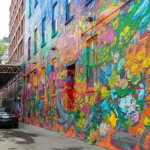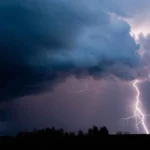
Your liver is a very important organ located just behind your rib cage in the upper right part of your stomach (abdomen). This organ, which people rarely really think of, is so important that if it didn’t do its job it could die in just one thing.The liver performs over 200 different functions in the body, including providing glucose for the Brain, filtering toxins that can get into your body, fighting infections, and storing nutrients and vitamins.
Our liver is the largest glandular organ of the human body and the second largest organ besides our skin.
There is a liver in every single vertebrate (animals with a backbone, or spinal column) discovered, and there still no good means of artificially replacing the liver.
Our liver simultaneously performs over 200 important functions for the body.
In addition to protecting us from any harmful substances that we may eat or otherwise put into our bodies, the liver also cleans our blood from the harmful chemicals that our own body produces just through living. These chemicals are then either put into our intestines as bile (which also helps absorb fats) and leaves our bodies as stool, or is passed to our kidneys and is filtered out into our urine.
Some of the important functions of the liver include supplying glucose to the brain, combating infections, and storing nutrients.
Bile, which is made by our livers, is what gives our stool it’s characteristic brown color.
0% of our liver is made up of fat. If the fat content in the liver goes above 10% it is considered a “fatty liver” and makes you more likely to develop type 2 diabetes.
Bilirubin, a chemical that our bodies make and our liver makes safe, is also filtered by our kidneys, which is what gives our urine the yellow color.
Our liver stores important vitamins and nutrients from the food we eat and stocks them up for when we need them later.
The liver has an amazing ability – it can constantly regenerate itself, and can take huge amounts of damage. This is why things like liver transplants are possible – someone can donate half of their liver to another person who needs a liver, and the half that is taken will grow back!
Our liver detoxifies the harmful things we take in like alcohol and drugs. Without the liver the body cannot process these items.
The liver stores excess sugars that you eat, or that are in your blood, in the form of a chemical called glycogen. Glycogen absorbs nearly 6 times its weight in water, so your liver is also important for water storage. When your body needs more sugars (like between meals), your liver breaks down the glycogen into glucose, which the rest of your body uses for fuel. The liver does this for the rest of your body, as the liver itself can’t use glucose for energy.
The liver creates the blood that circulates in our bodies. In fact, the liver starts producing blood before we are born. Without the liver there would be no blood and no life.
Your liver also helps you when you have a cut. The liver makes the chemicals, enzymes, and other factors that your blood uses to clot. If your liver is sick, it doesn’t make these very important things, and you will bleed easily.
Our liver has the amazing ability to regenerate itself, making liver transplant possible. When people donate half their liver, the remaining part of the liver regenerates the section that was removed.
The liver also processes nearly any medication you take, like Tylenol. Your body can’t use the medicines that you take normally, so your liver makes it into a form that your body can use.
Thomas Starzl, the surgeon who performed the world’s first liver transplantation in 1963, the world’s first successful liver transplantation in 1967, and the first simultaneous heart and liver transplantation in 1984, never enjoyed the surgical process.
Your liver also makes cholesterol. Sometimes people think of cholesterol as a bad thing, but cholesterol is important for building cells, and making certain chemicals called hormones. Hormones are like messengers in your body, and without them the different parts of your body wouldn’t be able to talk to each other very well.
The Liver also breaks down old blood cells and produces the proteins for blood clotting.
There are many things that can cause your liver to be sick, including a virus (hepatitis B, for example), drugs (alcohol is a good example), and poisons. A good sign your liver is sick is if your eyes and skin turn a yellow color.
The liver stores vitamins and minerals. The liver stores vitamins A, E, and K which are fat soluble vitamins.









